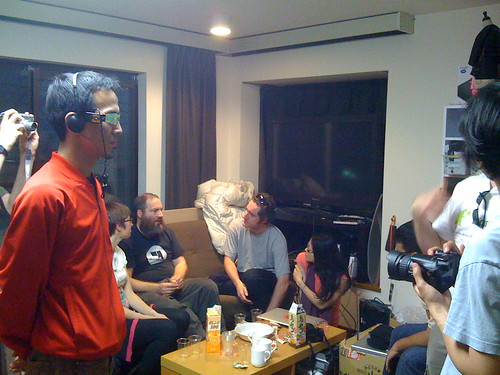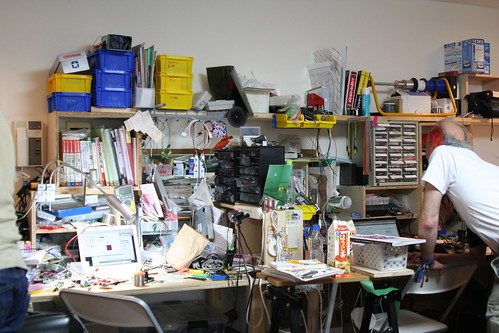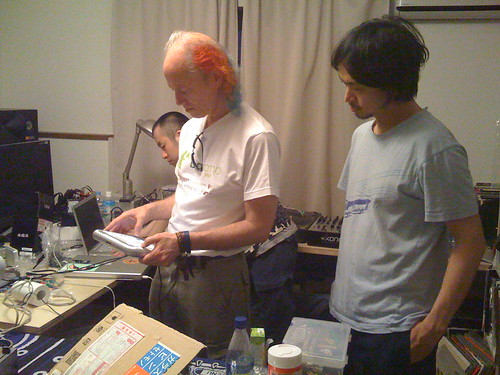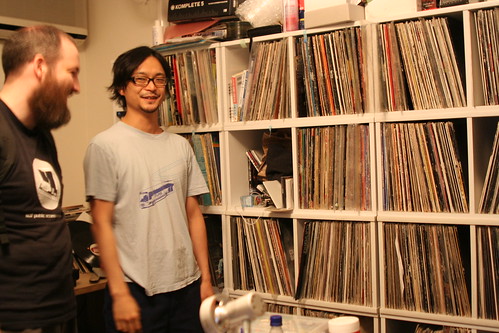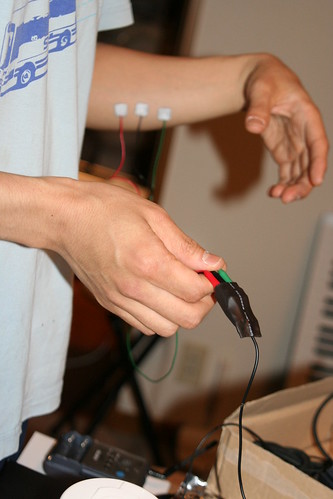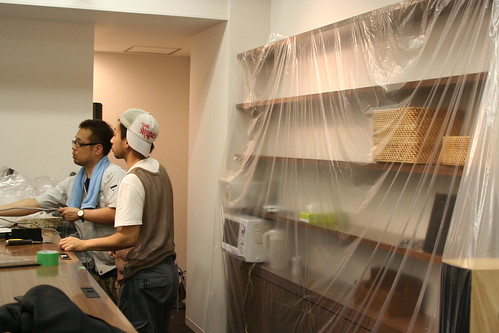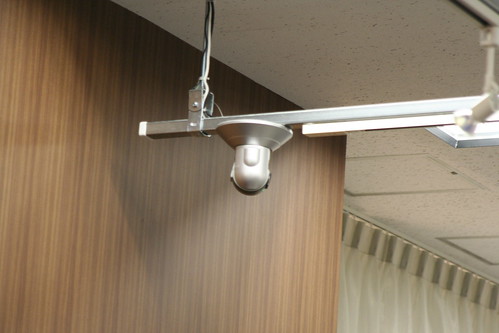Definitions
There are 2 important terms in this matter.
Political Campaign 【選挙運動】
Political Campaign is an action to persuade to vote for specific candidate for a specific election during the election period. (特定の選挙に、特定の候補者の当選をはかること又は当選させないことを目的に投票行為を勧めること。)
In Japan, the election period is 12 days before the election for the House of Representatives and 17 days for the House of Councilors. Election period is the only period that persuasion for voting is allowed. This makes a big difference with the elections in US where you spend a long long period of time for political campaigns. The reason for this limit in the period is to minimize the cost that is required for political campaigns.
-Political Activity 【政治活動】
Political Activity is all of the political activities EXCEPT Political Campaigns.
政治上の目的をもって行われるいっさいの活動から、選挙運動にわたる行為を除いたもの。
Internet can be used for "Political Activity", so political parties and politicians has their websites and blogs.
-Liberal Democratic Party of Japan (LDP, ruling party) website
-Democratic Party of Japan (DPJ) website
There are lots of blogs by politicians at ele-log[ja], and many others has their[ja] own[ja] blogs[ja]. Yahoo has a List of blogs by Members of the House of Representatives[ja] and a list of blogs by Members of the House of Councilors[ja].
However, Internet is prohibited to use for "Political Campaigns" based on Public Offices Election Act (公職選挙法) clause 142 which prohibits to "distribute documents, graphics and pictures" 「文書図画の頒布」 for the political campaigns. Updating websites, blogs and sending mail magazines are defined as one of these "documents, graphics and pictures".
There had been hot debates on this in the year 2005 when DPJ updated their website and sent mail magazine during the election period, LDP filed a complaint about it and the Ministry of Internal Affairs and Communications (MIC) called DPJ referring to this action as a violation of Public Offices Election Act. DPJ complained in return that LDP updated their website with news articles as well, and MIC called LDP as well. You can see some of the documents here[ja] (document from DPJ to MIC questioning the action by LDP, answer from MIC to DPJ) .
In 2007, both LDP and DPJ updated their website and neither filed any complaint so I think this issue has been taken care of in a very Japanese way- keep the grey things grey.
Some politicians were updating their podcasts saying "audio is none of the "documents, graphics and pictures" so it should be OK.
When Takafumi Horie -Ex-CEO of internet company Livedoor- became a candidate for election, Livedoor (the portal site) stopped updating[ja] political articles except the news articles that were provided from other news sources.
By the way, the Act regulates not only the political parties/politicians but EVERYONE (何人も) to "distribute documents, graphics and pictures" to "persuade voting for certain candidate on certain election", so if you are a blogger and write on your blog "hey you should vote for candidate A", then strictly speaking you are violating the Public Offices Election Act, but in reality nothing would probably happen.
NicoNicoDouga
NicoNicoDouga - a popular video sharing site in Japan - has gained interesting position with the politicians.
One day, one of the users uploaded a video of the politicians debating in the diet, and the viewers started to get interested and spread the word and started commenting on the video. It is said that the users of NicoNicoDouga are youngsters, and those generation does not watch TV, are not very interested in politics so they were the clusters that the politicians were having a hard time reaching out. But in that video, what Kazuo Shii- head of the Communist Party- was saying made a lot of sense to them, and people started to listen and support him. The Communist Party started uploading more videos after that. NicoNicoDouga has become one of the avenues for the politicians to reach out to the younger generation.
So when NicoNicoDouga started a new service called "NicoNicoChannel" where users/companies/organizations can create landing pages, political parties and politicians rushed in.
Political parties' channels (LDP, DPJ and Communist party)

Politicians' channels (Mizuho Fukushima, Yoshiro Mori, and Yuriko Koike)

Also when NicoNicoDouga started another new service called "NicoNicoNamaHousou" which is a live streaming service (like Ustream), politicians started using them too. During NicoNicoNamaHousou, viewers can write comments on the screen, and if the politicians so wish they can read the comments while streaming and reply to them (not everyone wants to do that). This is NicoNama of Ichiro Ozawa (was the head of DPJ then). Today, Kazuo Shii (head of Communist Party) was on NicoNama.

(update 6/19)
Prime Minister Taro Asou's speech in Akihabara was on NicoNama too, and you can still see the video here.
Also, LDP proposed a program to invite 200 people to visit the Parliament building and their headquarter and do a NicoNama answering their questions which attracted 5000 viewers. You can see the video here.
NicoNicoDouga has another service called NicoWariEnquete which is like online survey that can be conducted with NicoNicoDouga viewers. NicoNicoDouga did a NicoWariEnquete asking the viewers what they'd like to ask the Prime Minister. The Prime Minister took his time to answer the questions that were raised and you can see his video here.
Lots of the users of NicoNicoDouga are kids and some are very rude, and I thought politicians wouldn't like that environment as they are used to being looked up to- but so far it looks like it hasn't been a problem to them.
Changing the Public Offices Election Act
There had been lots of debates about this issue, for example DPJ issued a draft for amending the Public Offices Election Act (1998/06/18
インターネット選挙を解禁する公職選挙法改正案の提出について[ja]) to enable the use of Internet during election period back in 1998, but the situation stays the same today. Quote from the draft "By reinforcing this amendment and enabling Election Campaigns on the Internet, we can realize conversation with constituents on policies. この公職選挙法改正で、インターネットのホームページでの選挙運動が可能になることによって、政策本位の有権者との対話が実現する。"
I think this one sentence that was written back in 1998 proves they understood 2 important points. 1) to have conversation with the constituents 2) those conversations should be centered on policy.
What we learned from Obama Campaign was that he was trying to gain understanding and conversation and trying to be as interactive as possible. At the "Change Government" site, people could write expectations and ideas for Obama when he becomes the president and others could vote on those ideas, the policy team were sharing new ideas where people can write feedbacks, people could submit questions which were answered by House Press Secretary. This enabled the Obama team to understand what people wants/expects, and people could understand what Obama team was up to and give them their opinions and feedbacks, and strengthened the understanding, conversation and interaction. People were able to discuss about specific policies here.
DPJ submitted another draft[ja] to amend the Public Offices Election Act and enable the usage of Internet in 2006 for the 4th time. The Act has not changed yet- as of June 2009.
2 Japanese politicians -Mr. Seiji Ohsaka of DPJ and Mr. Gaku Hashimoto of LDP - started using Twitter recently, and are commenting about the policy issues and/or writing about the details of what's being discussed during the diet. Seiji Ohsaka tweeted[ja] yesterday about the debate among party leaders while watching it on TV including his comments in realtime.
For example, this is one of his posts while watching the party leader debate:
First sentence is reporting what the Prime Minister said, and the second sentence with brackets is his opinion.

"(Prime Minister Aso) Not all of the budget was waste
(Of course, but you need to prove it and therefore you should publicize the details) "
7/18 Update:
On 6/30, we held a workshop on "Twitter and Politics" which I was one of the panelists with LDP politician Mr. Gaku Hashimoto, IT journalist Mr. Daisuke Tsuda and Mr. Masahiko Shoji of GLOCOM. Since then, the number of politicians that uses Twitter increased[ja] to 20 (!) and a website called "Politter"[ja] which has updates of all the Twitter-politicians' tweets.

Seiji Ohsaka submitted his questions regarding Twitter and political activities to the Ministry of Internal Affairs and posted the reply he got on his blog [ja]
(ツイッターを使用して選挙運動を行うことについて)
公職選挙法第142条第1項は、選挙運動のために使用する文書図面について、同条に規定する通常葉書又はビラのほかは、頒布することができないと規定しています。
コンピューター等のディスプレイ上に表示された文字等の意識の表示は文書図画に該当するものですが、同条の規定により選挙運動のために頒布することができる文書図画ではないことから、現在、お尋ねのツイッターは選挙運動のために使用することができません。
"About the usage of Twitter- Public Offices Election Act 142-1 prohibits the distribution of documents, graphics and pictures used for Political Campaigns other than postcards and leaflets that are specified in the article. Letters displayed on the computer are considered as one of those documents/graphics/pictures, and therefore Twitter cannot be used for Political Campaigns."
Twitter (and websites and weblogs and mailmagazines etc) usage for Political Campaigns are banned in Japan, but it can be used for Political Activities, and we are able to read and enjoy the opinions, comments and thoughts of some of the politicians in real-time. I think it's a big step.


